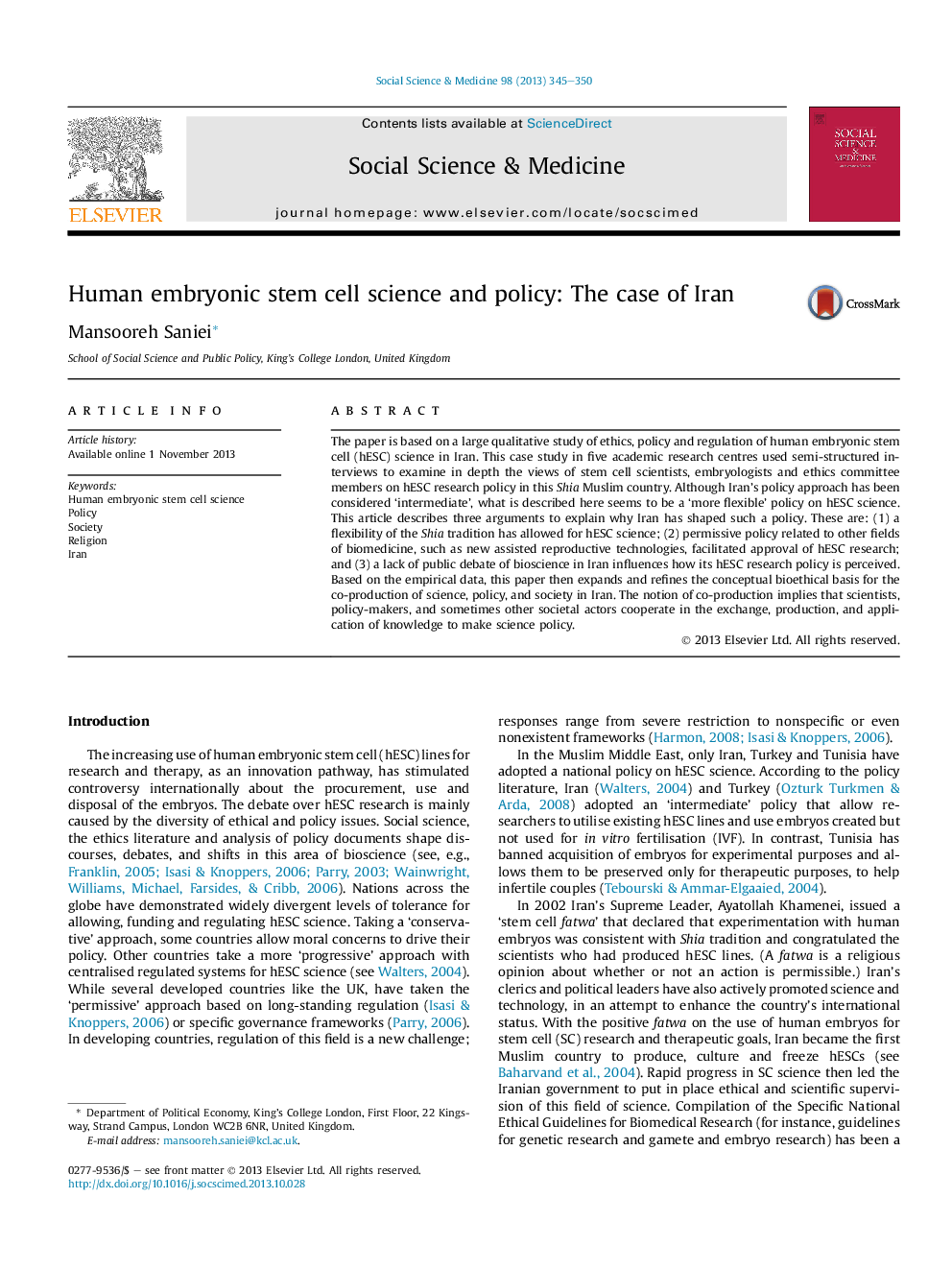| Article ID | Journal | Published Year | Pages | File Type |
|---|---|---|---|---|
| 7336708 | Social Science & Medicine | 2013 | 6 Pages |
Abstract
The paper is based on a large qualitative study of ethics, policy and regulation of human embryonic stem cell (hESC) science in Iran. This case study in five academic research centres used semi-structured interviews to examine in depth the views of stem cell scientists, embryologists and ethics committee members on hESC research policy in this Shia Muslim country. Although Iran's policy approach has been considered 'intermediate', what is described here seems to be a 'more flexible' policy on hESC science. This article describes three arguments to explain why Iran has shaped such a policy. These are: (1) a flexibility of the Shia tradition has allowed for hESC science; (2) permissive policy related to other fields of biomedicine, such as new assisted reproductive technologies, facilitated approval of hESC research; and (3) a lack of public debate of bioscience in Iran influences how its hESC research policy is perceived. Based on the empirical data, this paper then expands and refines the conceptual bioethical basis for the co-production of science, policy, and society in Iran. The notion of co-production implies that scientists, policy-makers, and sometimes other societal actors cooperate in the exchange, production, and application of knowledge to make science policy.
Related Topics
Health Sciences
Medicine and Dentistry
Public Health and Health Policy
Authors
Mansooreh Saniei,
